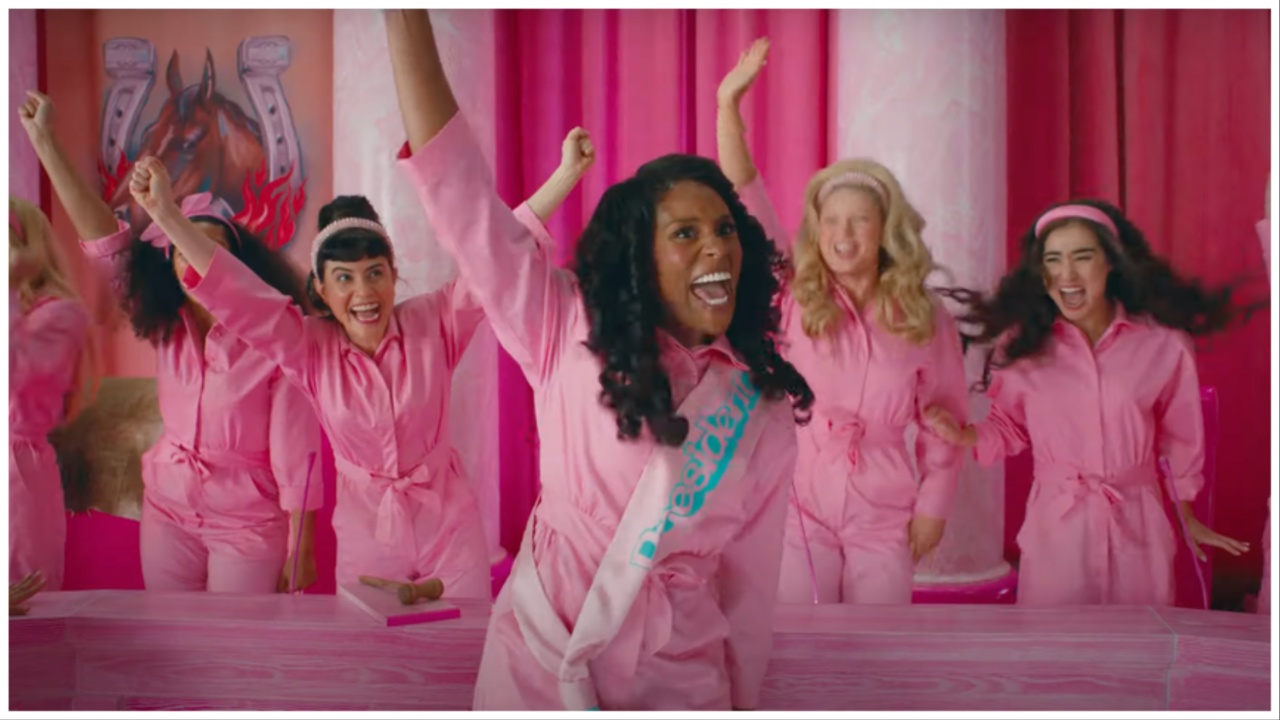The Best Part of ‘Barbie’ Happens Before the Film Even Begins

After much anticipation and brilliantly executed promotion, Greta Gerwig’s Barbie is finally here. And readers, it’s a goddamn delight. Smart, moving, and unapologetically feminist, the film is a home run that speaks to the joys and contradictions of being a woman. And despite the opinions of some whiny manbabies, critics agree, giving the film a 90 percent fresh score on Rotten Tomatoes. And audiences are with them, as Barbie is poised to earn over $150 million this weekend domestically.
But as much as I enjoyed the film (and I loved it), I was even more moved by something else. As I drove up to the theater to catch my showing, I saw legions of women dressed in pink, their heels clicking down the street. I saw Barbie cosplay, and even men in T-shirts that read “I’m Ken.” I rolled down my window to see a former co-worker in a bright pink shirt that read “Mommi” in that signature Barbie font. “You Barbing tonight?”, I shouted to her. She screamed back, “Yes!”.
As I made my way down the streets, I kept passing groups of girlfriends, dressed to the nines, all excited for a night out together. The wave of pink took me into the theater, where women start spontaneously greeting one another. “Hi Barbie!”, a girl in a pink velour jumpsuit called out to the girls in her aisle. “Hi Barbie!”, they gleefully responded. Rows and rows of women began doing the same. As the lights dimmed, everyone applauded. The enthusiasm was palpable.
It struck me that there are so few public venues for women to gather together to celebrate the things they love. Places where they can be unabashedly feminine without being belittled or objectified. I marveled at the sense of community, of the unabashed joy of this audience. Is this what going to church feels like? Barbie feels like somewhat of a religious experience, which is exactly what Gerwig wants. In an interview with the New York Times, she said, “I want people to feel like I did at Shabbat dinner, … I want them to get blessed.”
In the film, Barbieland is a feminist utopia, a world without pain or fear, where women rule and excel at every endeavor. Instead of competing with one another, they celebrate their friendships endlessly, with nightly slumber parties and constant words of affirmation. And for the briefest moment, that world is mirrored in this audience. Here we are, together, in community, supporting one another, living our best damn lives. This makes Barbie more than a movie … it’s an experience. See it now, see it with friends, and see it wearing pink.
(featured image: Warner Bros. Discovery)
Have a tip we should know? tips@themarysue.com